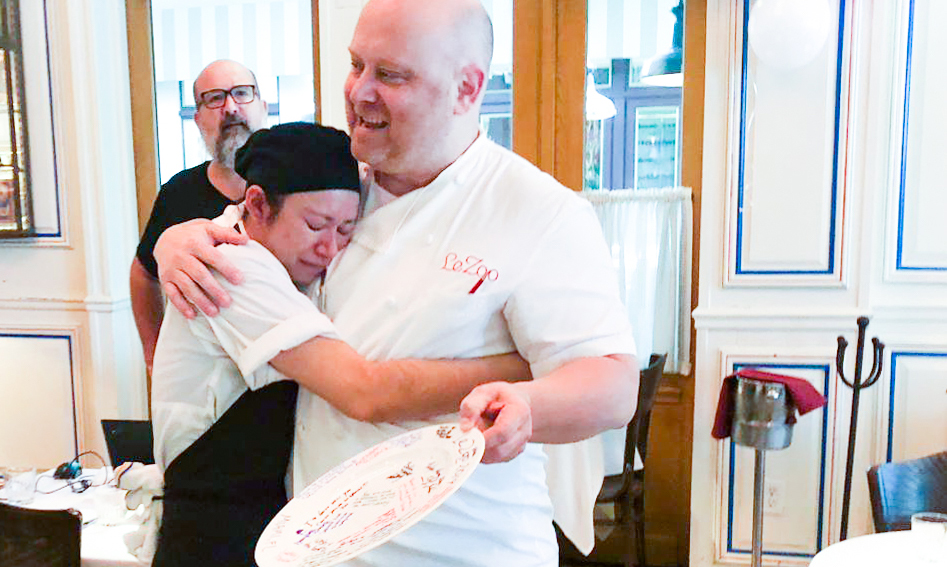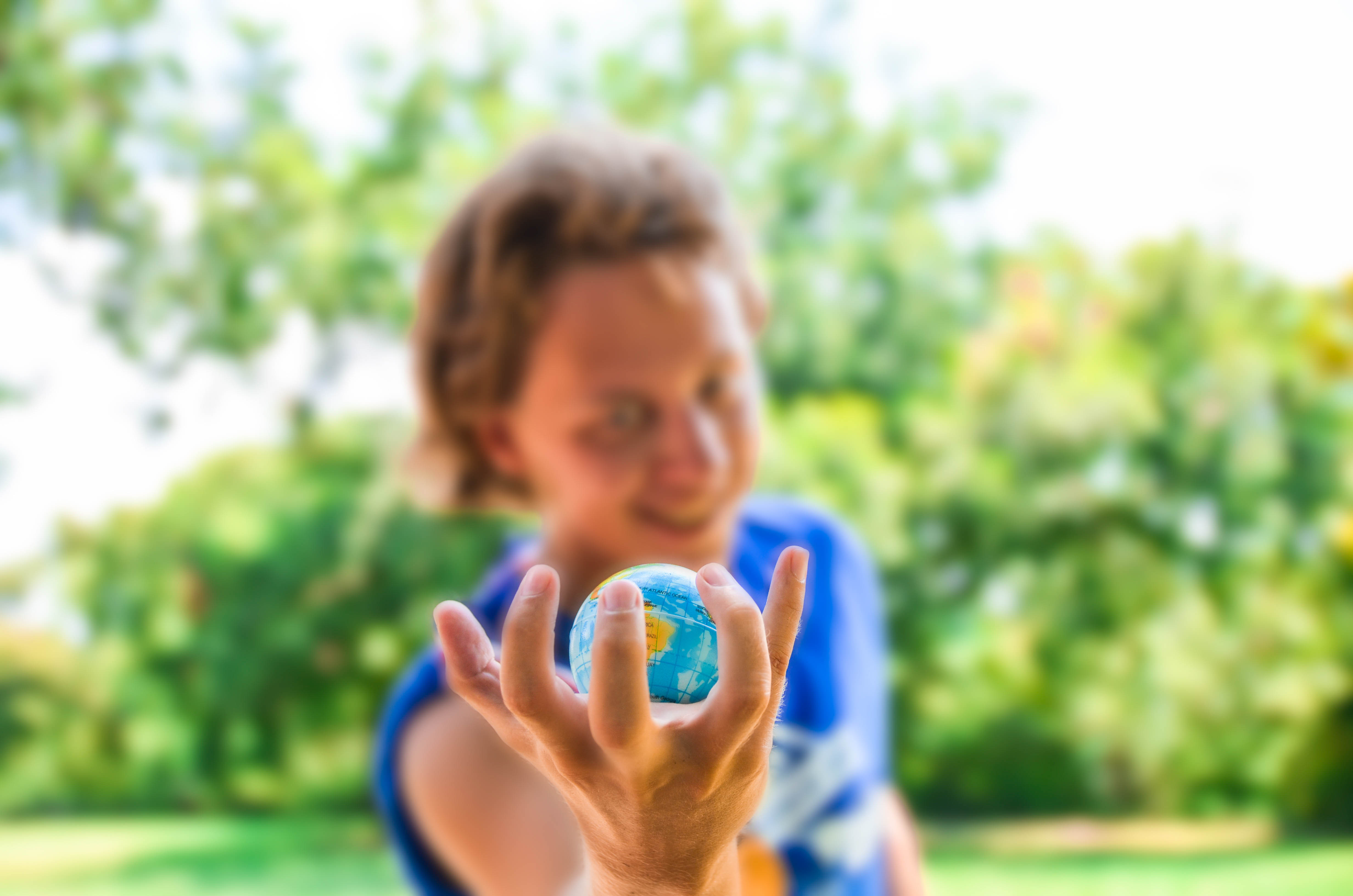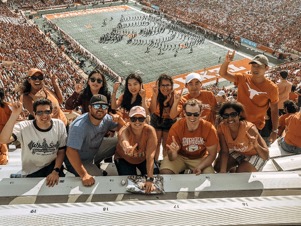 Wilmar Lee is a robotics fanatic and she’s passing her infectious passion to middle school students in Houston, Texas. Wilmar is not from Texas, in fact, she’s not an American. She’s a Filipino citizen participating in a teacher exchange program. Back home, on the other side of the world, Wilmar taught math, computer and MAPEH (Music, Art, PE, & Health) classes for 12 years. She was also an innovator and proponent of using robotics as a way to engage students and promote STEM studies (science, technology, engineering and math).
Wilmar Lee is a robotics fanatic and she’s passing her infectious passion to middle school students in Houston, Texas. Wilmar is not from Texas, in fact, she’s not an American. She’s a Filipino citizen participating in a teacher exchange program. Back home, on the other side of the world, Wilmar taught math, computer and MAPEH (Music, Art, PE, & Health) classes for 12 years. She was also an innovator and proponent of using robotics as a way to engage students and promote STEM studies (science, technology, engineering and math).
The robotics program that Wilmar started in the Philippines ranked 3rd out of the 100 participating schools, qualifying the Philippine team to participate in the World Robotics Olympiad 2017 in India. Through the robotic project that she started at Energized for Excellence Academy Middle School in Houston, Wilmar wants to bring the same enthusiasm, participation and results.

How did a math teacher from the Philippines end up starting a robotics class in a Houston charter school? According to Wilmar, her journey has been nothing short of incredible. Wilmar is one of the 13 teachers from the over 300 applicants selected to come to the United States under a teacher exchange J-1 visa. When her original teaching position in Washington, D.C. was eliminated, the host school turned to Alliance Abroad, a Department of State cultural exchange sponsor, to help Wilmar find another U.S. teaching opportunity.
“It’s a blessing to be here in Houston. I love the students, community and school,” Wilmar says humbly. Wilmar considered her Filipino colleagues as a family, which has made the experience even more welcoming. She thanks Alliance Abroad for finding the teaching position in Texas. “Alliance Abroad is the reason I am here, and I am grateful.” Wilmar is also appreciative of the support from school principal, Arlene Kho, who was not only very receptive to the idea of starting a robotics club, but ensured that it was funded. The voluntary after-school program has been so successful, that the school has plans to offer robotics as an elective and to invest in more robotics kits to support the program.
Besides sponsoring the robotics club, Wilmar teaches sixth grade math. Although she holds a doctorate degree in educational management, Wilmar confesses that her math teaching skills were a bit rusty. She credits Principal Kho, also from the Philippines, for helping her with any curriculum-related challenges. Wilmar commends her principal for being open to “innovation and technology,” disciplines that American schools need to strengthen. According to major studies, U.S. students aren’t keeping pace with their peers around the world. Recently released data from international math and science assessments indicate that “U.S. students continue to rank around the middle of the pack, and behind many other advanced industrial nations.”

Robotics is a great way to teach math, technology and science while challenging students to use problem-solving, analytic and creative thinking skills, explains Wilmar. She laughs when she says that some of the students are so enthusiastic and engrossed in creating their robots, they don’t want to leave school. The word about the program has spread locally, and students are applying to the academy because of the innovative robotics program.
Robots are replacing “dangerous, dirty and dull jobs.” Wilmar believes that robots are a part of the future and will be used for dangerous tasks like diffusing bombs or window cleaning on high-rise buildings- both are extremely risky jobs. Robotics are helping in other ways, too like a robotics sensor in a walking cane that vibrates or buzzes to help elderly people with vision problems stay safe and avoid collisions or falls.
Wilmar has high aspirations for her robotics program, and envisions that she’ll take her Houston students to the World Robotics Olympiad someday. She is excited to share her skills and dreams about her students changing the world and helping their country. Wilmar hopes her middle school students will become inventors, scientists, engineers or socially-conscience entrepreneurs, using robots to make the world a better and safer place.

“This teaching (J-1) program has been an amazing experience,” she says. Wilmar loves learning about American culture and sharing information about her own culture with students, colleagues, school and the local community. She uses the word “blessed” frequently when she talks about her cultural and teaching experience and about the people who have enabled the robotics program and supported her journey.
It seems pretty clear that Wilmar’s students and school are equally fortunate to have a teacher who finds incredible satisfaction enriching, challenging and expanding young minds. Wilmar is clearly is making a mark and helping Houston students head down a path of innovation, discovery and positive change in the world.





